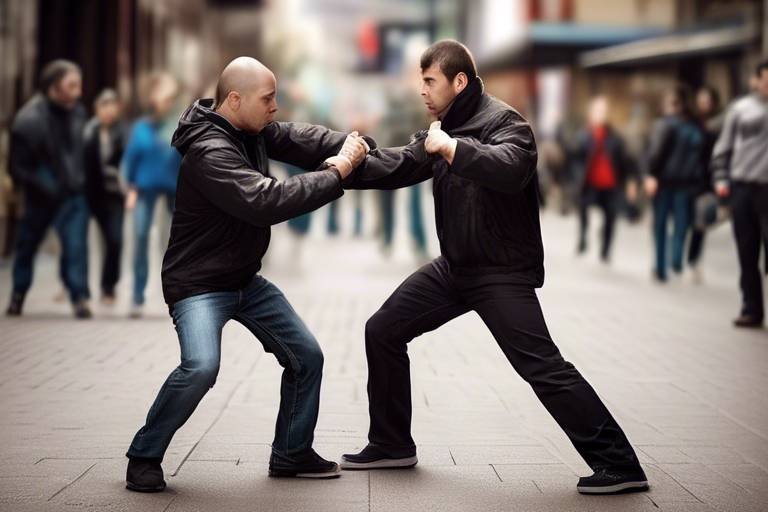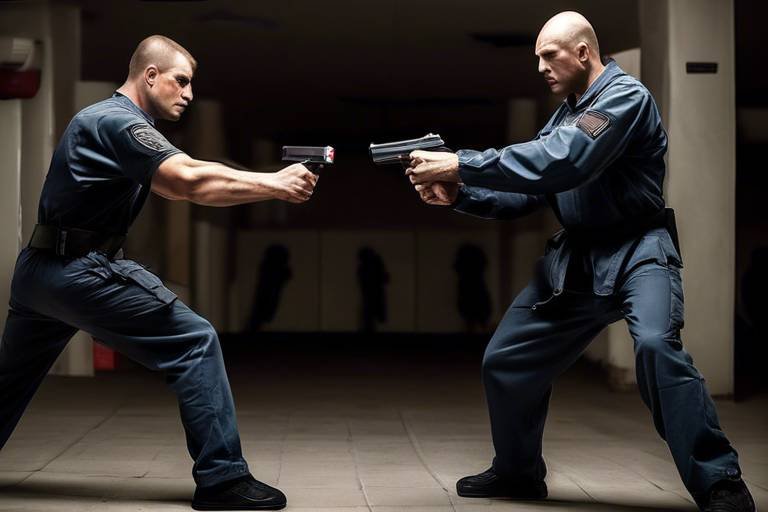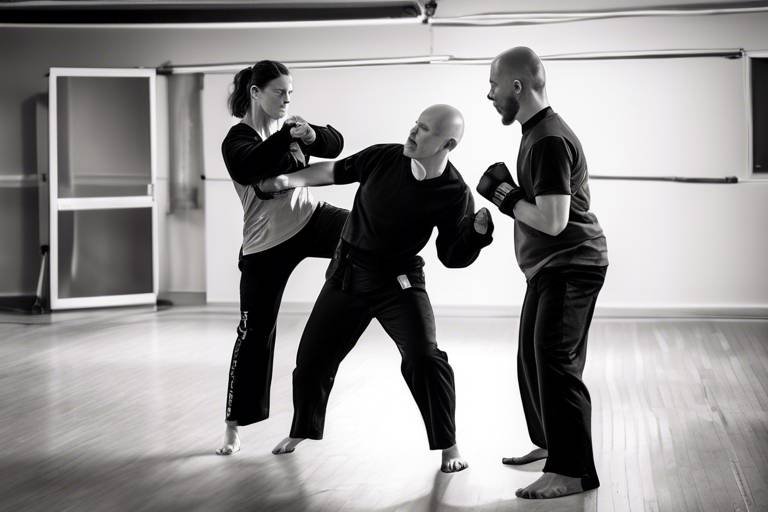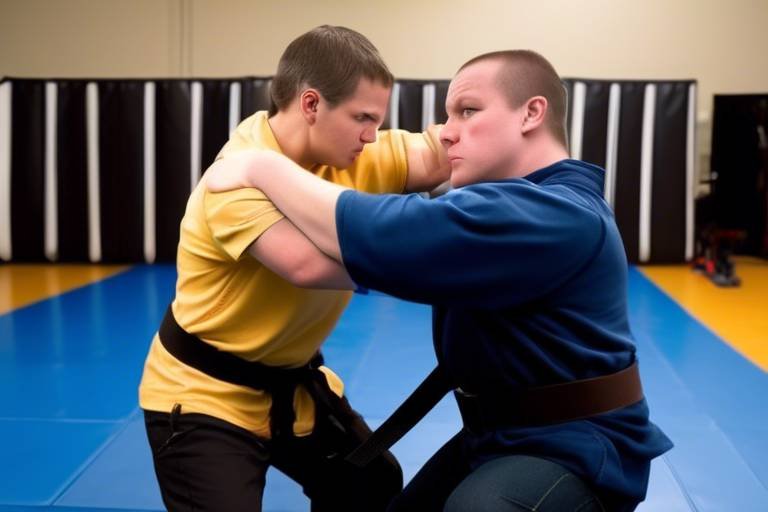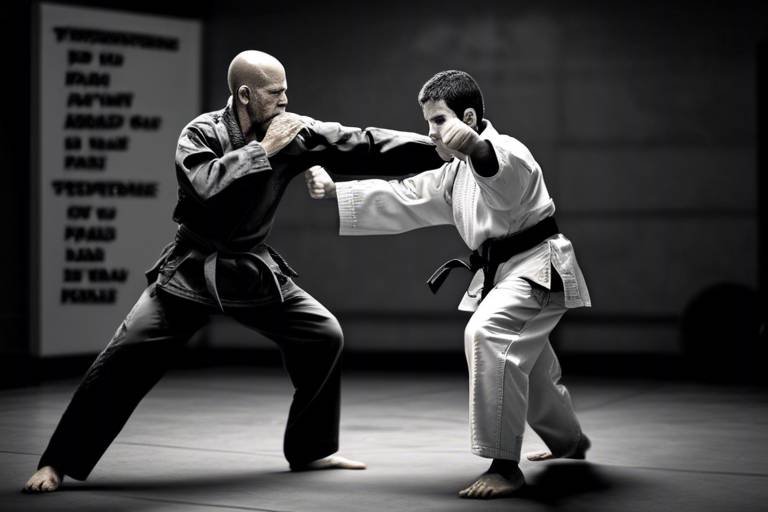Effective Weapons in Self Defense Training - What are Your Choices?
In a world where personal safety is increasingly paramount, understanding the tools available for self-defense can be a game changer. Whether you're walking home late at night or simply want to feel more secure in your daily life, having the right self-defense weapon can empower you. But with so many options out there, how do you know which one is right for you? From non-lethal options like pepper spray to more lethal choices such as firearms, each weapon has its own unique features and appropriate usage scenarios. This article aims to break down these choices, providing you with the knowledge you need to make informed decisions for your safety.
Self-defense weapons serve a critical purpose: they help individuals protect themselves from potential threats. Essentially, these tools are designed to incapacitate an attacker or deter them from pursuing further aggression. When choosing a self-defense weapon, it's vital to consider factors such as your personal comfort, the legal implications, and the specific scenarios in which you may find yourself needing to use the weapon. The right choice can significantly enhance your ability to defend yourself effectively, making it important to understand the various types available.
When it comes to self-defense weapons, they can be categorized into two main types: non-lethal and lethal weapons. Each category offers distinct advantages and considerations that can influence your choice.
Non-lethal self-defense options are designed to incapacitate an attacker without causing permanent harm. These weapons are often favored by those who prefer to avoid lethal force, especially in situations where de-escalation is possible. Some popular non-lethal weapons include:
- Pepper Spray
- Personal Alarms
Pepper spray is a widely recognized self-defense tool that can provide an effective means of protection. It works by causing temporary blindness and intense discomfort to an attacker, giving you a chance to escape. However, it's essential to understand the legal considerations surrounding its use in your area. Make sure to check local laws, as regulations can vary significantly. When using pepper spray, aim for the attacker's face, and remember to practice using it in a safe environment to ensure you're prepared in a real situation.
Another excellent non-lethal option is the personal alarm. These devices emit a loud sound when activated, which can deter an attacker and alert those nearby to your situation. The beauty of personal alarms is their simplicity; they require no special training and can be easily carried in your pocket or attached to a keychain. In many cases, the presence of a personal alarm can be enough to prevent an attack from happening altogether.
Lethal self-defense weapons, such as firearms and knives, come with their own set of responsibilities and legal implications. While they can be effective in protecting yourself, they also require extensive training and a thorough understanding of the laws governing their use. For instance, owning a firearm not only necessitates obtaining a permit but also demands regular practice and a commitment to safe handling. It's crucial to weigh the pros and cons of lethal weapons and consider whether you are prepared for the responsibilities that come with them.
Understanding the legal landscape surrounding self-defense weapons is just as important as knowing how to use them. Laws can vary widely by location, and being informed can prevent you from facing legal repercussions. For instance, some areas may have restrictions on the size or type of pepper spray you can carry, while others may require permits for firearms.
Self-defense laws generally grant individuals the right to protect themselves from imminent harm. However, the concept of "reasonable force" is key here. It's essential to know where the line is drawn between defending yourself and using excessive force, as crossing that line can lead to legal trouble.
If you decide to go the route of lethal self-defense weapons, you'll likely need to navigate the process of obtaining the necessary permits and licenses. This can involve background checks, safety courses, and sometimes even psychological evaluations. Familiarizing yourself with the local regulations can save you time and hassle in the long run.
- What is the best self-defense weapon for beginners?
For beginners, non-lethal options like pepper spray or personal alarms are often recommended due to their ease of use and lower legal barriers.
- Are there age restrictions for carrying self-defense weapons?
Yes, many places have age restrictions for carrying certain self-defense weapons, especially firearms. Always check your local laws.
- Can I use a self-defense weapon if I feel threatened?
Yes, but it's important to understand the legal definition of self-defense in your area, including the concept of reasonable force.

Understanding Self Defense Weapons
When it comes to personal safety, understanding self-defense weapons is crucial. These tools are designed to help individuals protect themselves in threatening situations, and knowing which one to choose can be the difference between safety and danger. The primary purpose of self-defense weapons is to incapacitate an attacker, allowing the victim to escape or seek help. However, the effectiveness of these weapons can vary significantly based on the type, the user's training, and the specific circumstances of the encounter.
Self-defense weapons can be categorized into two main types: non-lethal and lethal. Non-lethal weapons, such as pepper spray and personal alarms, are designed to temporarily incapacitate an attacker without causing permanent harm. These options are often favored for their ease of use and lower legal repercussions. On the other hand, lethal weapons, including firearms and knives, require a higher level of responsibility and training. Their use is often surrounded by strict legal regulations, making it essential for users to be well-informed about the laws governing their use.
Choosing the right weapon for self-defense is not just about personal preference; it involves considering factors such as effectiveness, legality, and personal comfort. For instance, someone who feels confident in their ability to handle a firearm may choose to carry one, while another person might prefer the simplicity and accessibility of pepper spray. It’s also important to consider the environment in which one might need to defend themselves—urban areas may present different challenges compared to rural settings.
Moreover, understanding the legal implications surrounding self-defense weapons is vital. Different states and countries have various laws regarding the possession and use of these weapons, and being ignorant of these laws can lead to serious consequences. Therefore, it’s advisable for individuals to educate themselves about local regulations, ensuring that they are equipped to handle any situation legally and responsibly.
In summary, the landscape of self-defense weapons is diverse, and making an informed choice requires careful consideration of multiple factors. Whether opting for non-lethal or lethal options, understanding the purpose, effectiveness, and legal aspects of these weapons can empower individuals to protect themselves more effectively. Remember, the ultimate goal of self-defense is to ensure safety, and the right weapon can be a crucial part of that strategy.

Types of Self Defense Weapons
When it comes to self-defense, the variety of weapons available can be both exciting and overwhelming. Understanding the different types of self-defense weapons is crucial for anyone looking to enhance their personal safety. From non-lethal options to more serious lethal weapons, each category serves a unique purpose and comes with its own set of advantages and considerations.
Non-lethal weapons are often the first choice for individuals who want to incapacitate an attacker without causing permanent harm. These weapons are designed to provide a means of escape rather than to engage in a physical confrontation. For instance, pepper spray is a popular option due to its effectiveness in temporarily blinding an assailant and allowing the victim to flee. Another non-lethal tool worth mentioning is the personal alarm, which can emit a loud noise to deter attackers and alert others nearby. These devices are particularly useful for individuals who may feel vulnerable in public spaces.
On the other hand, lethal weapons, such as firearms and knives, require a deeper understanding of responsibility and training. While these weapons can provide a significant level of protection, they also come with legal implications and the potential for serious injury or death. It's essential for anyone considering these options to undergo proper training and to be fully aware of the laws governing their use. For instance, firearms can be incredibly effective for self-defense, but they also require a permit and extensive training to handle safely.
Here’s a quick breakdown of the types of self-defense weapons:
| Type | Examples | Use Case |
|---|---|---|
| Non-Lethal | Pepper Spray, Personal Alarms | To incapacitate an attacker without causing permanent harm |
| Lethal | Firearms, Knives | For serious self-defense situations requiring immediate protection |
Choosing the right self-defense weapon is not just about effectiveness; it's also about personal comfort and legal considerations. For example, while some individuals may feel empowered carrying a firearm, others might prefer the simplicity and ease of use that comes with pepper spray. Understanding your environment, personal capabilities, and local laws will help you make an informed decision that aligns with your self-defense needs.
In conclusion, whether you opt for non-lethal or lethal weapons, the key is to be educated and prepared. Knowledge is your best defense, and being aware of the various types of self-defense weapons available can empower you to protect yourself effectively.
- What is the best non-lethal self-defense weapon?
While it varies by individual preference, pepper spray is often recommended for its effectiveness and ease of use.
- Do I need a permit for a stun gun?
It depends on the state or country you live in; always check local laws regarding stun gun ownership.
- Are personal alarms effective?
Yes, personal alarms can deter attackers and alert those nearby, making them a valuable tool for personal safety.
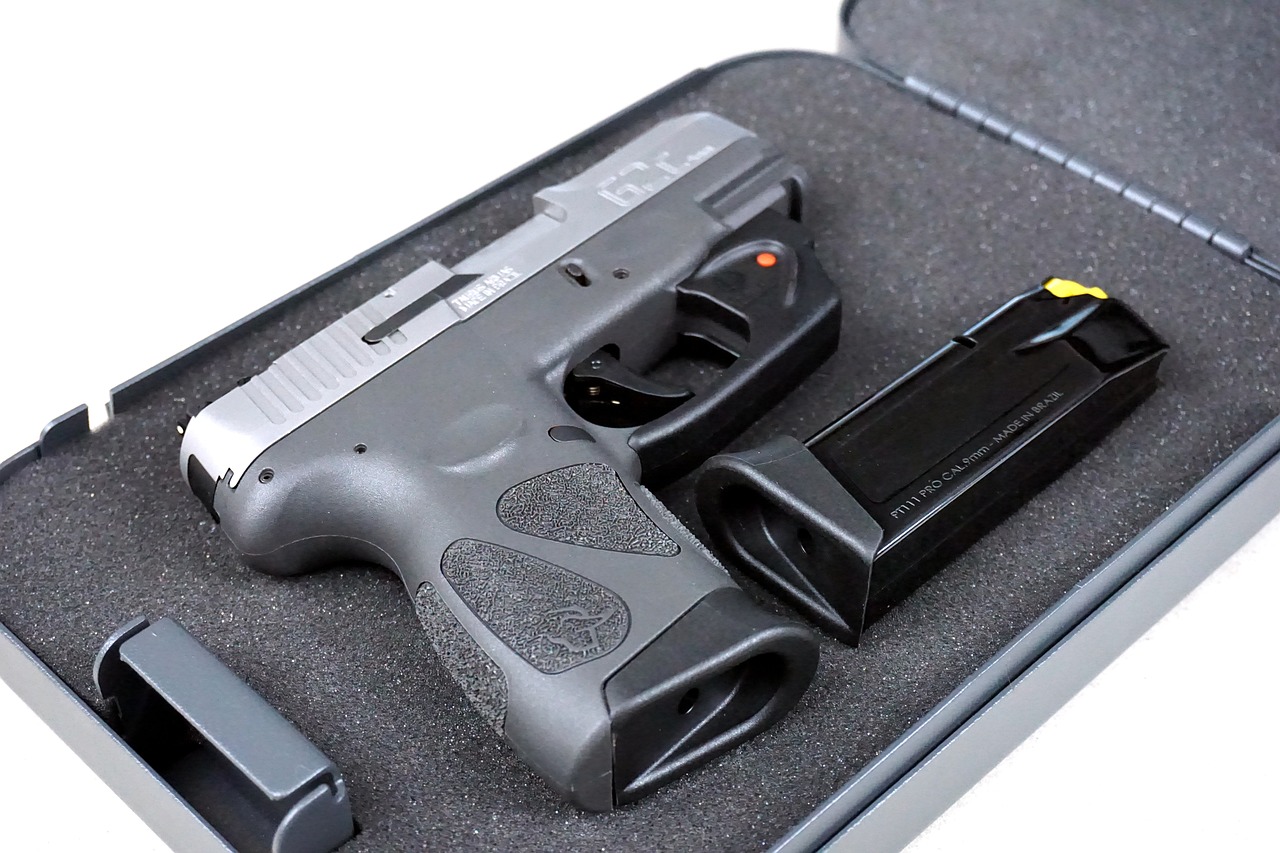
Non-Lethal Weapons
When it comes to self-defense, many people are understandably hesitant about using lethal force. This is where come into play. Designed to incapacitate an attacker without causing permanent harm, non-lethal weapons provide a sense of security while minimizing the risk of severe consequences. Imagine a situation where you find yourself in a threatening scenario; having a non-lethal weapon can empower you to defend yourself effectively without crossing the line into lethal force.
Among the most popular non-lethal options are pepper spray and personal alarms. Each of these tools offers unique advantages and can be used in various situations. For instance, pepper spray can temporarily blind an attacker, giving you precious seconds to escape, while personal alarms can draw attention to your situation, potentially scaring off the assailant. The effectiveness of these weapons lies in their ability to create an opportunity for you to get to safety.
Let’s take a closer look at these non-lethal weapons:
| Weapon | Effectiveness | Usage Scenarios | Legal Considerations |
|---|---|---|---|
| Pepper Spray | Temporarily incapacitates | Close encounters, nighttime walks | Varies by location; often requires age restrictions |
| Personal Alarms | Deters attackers and alerts others | Public spaces, crowded areas | Generally legal, but check local regulations |
Using these weapons effectively requires some knowledge and practice. For example, with pepper spray, it’s vital to understand the proper distance to spray and how to aim for the attacker's face. This ensures maximum effectiveness while minimizing the risk of blowback. Similarly, personal alarms should be easily accessible so that you can activate them quickly in a moment of panic. Think of these tools as extensions of your self-defense strategy, enhancing your ability to protect yourself.
In conclusion, non-lethal weapons serve as a crucial component in the realm of self-defense. They offer peace of mind and a practical means of protection without the permanent consequences associated with lethal weapons. By understanding how to use these tools effectively, you can navigate potentially dangerous situations with greater confidence and safety.
- Are non-lethal weapons legal everywhere? - Laws vary by location, so it's essential to check your local regulations regarding the possession and use of non-lethal weapons.
- Can pepper spray be used against multiple attackers? - While pepper spray is effective against one individual, its effectiveness may diminish if multiple attackers are present, and it may be more challenging to aim accurately.
- How loud are personal alarms? - Most personal alarms can reach volumes of 120 decibels or more, which is loud enough to attract attention and deter potential attackers.

Pepper Spray
Pepper spray is one of the most popular non-lethal self-defense weapons available today. Its effectiveness lies in its ability to incapacitate an attacker temporarily, allowing the victim to escape. When sprayed in the face of an assailant, the active ingredient, capsaicin, causes intense burning sensations in the eyes, skin, and respiratory system. This reaction not only disorients the attacker but also gives the victim precious seconds to get away. Imagine being in a threatening situation, and with just a quick spray, you can create a barrier between yourself and danger. It’s like having a safety net that can be deployed at a moment’s notice.
However, while pepper spray is a powerful tool, it’s essential to understand its proper usage and the legal considerations surrounding it. For instance, many jurisdictions have specific regulations about the strength and size of pepper spray canisters. Some areas may even restrict its use entirely. Therefore, before purchasing pepper spray, it’s crucial to research local laws to ensure compliance. You wouldn’t want to find yourself in a legal quagmire when all you intended was to protect yourself!
When it comes to using pepper spray, the key is practice. Familiarize yourself with how to operate the canister effectively. Most models have a simple mechanism, but in high-stress situations, even a small hiccup can make a significant difference. Here are a few tips to keep in mind:
- Know the Range: Most pepper sprays have an effective range of about 6 to 10 feet. Practice aiming to ensure you can hit your target.
- Wind Direction: Be mindful of the wind; spraying into the wind can backfire and affect you instead.
- Target the Face: Aim for the eyes and face to maximize the spray's effectiveness.
In addition to practical usage, it’s also important to consider the psychological aspect of carrying pepper spray. Just having it on you can provide a sense of security, almost like carrying a lucky charm that you hope you never have to use. But remember, it’s not just a magic wand; it’s a tool that requires responsibility and respect. Always be aware of your surroundings and make informed decisions about when and how to use it. After all, self-defense is not just about the weapon; it’s about the mindset.
In summary, pepper spray is a highly effective self-defense weapon that combines ease of use with significant stopping power. Whether you're walking home late at night or traveling in unfamiliar areas, having pepper spray can provide peace of mind. Just remember to stay informed about the legal aspects, practice regularly, and always prioritize your safety. With these considerations in mind, you can wield this powerful tool with confidence.
Q: Is pepper spray legal everywhere?
A: No, the legality of pepper spray varies by location. Always check your local laws before purchasing or carrying it.
Q: How long does the effect of pepper spray last?
A: The effects of pepper spray can last from 20 to 90 minutes, depending on the individual and the concentration of the spray.
Q: Can I carry pepper spray on an airplane?
A: Generally, pepper spray is prohibited in carry-on luggage on airplanes. Always check with your airline for specific regulations.
Q: What should I do if I accidentally spray myself?
A: If you accidentally spray yourself, move to a well-ventilated area, flush your eyes with water, and seek medical attention if necessary.

Personal Alarms
When it comes to self-defense, might not be the first weapon that comes to mind, but they can be incredibly effective in deterring potential threats. Imagine walking down a dimly lit street when suddenly you hear a loud, piercing sound that could scare off an attacker and draw attention to your situation. That’s the power of a personal alarm! These compact devices are designed to emit a loud noise—often exceeding 120 decibels—when activated, making them an excellent choice for individuals seeking a non-violent means of protection.
One of the most significant advantages of personal alarms is their ease of use. Most models simply require you to pull a pin or press a button to activate the alarm, allowing for quick reactions in potentially dangerous situations. They are also lightweight and portable, making them easy to carry in a purse, backpack, or even attached to a keychain. This convenience means you can have peace of mind wherever you go, whether you’re heading to work, out for a jog, or enjoying a night out with friends.
Furthermore, personal alarms serve a dual purpose: they not only alert others to your distress but also can serve as a psychological deterrent to would-be attackers. The noise produced can attract the attention of passersby or nearby security personnel, potentially stopping an attack before it escalates. In this way, personal alarms act as both a preventive tool and a means of alerting others to your need for help.
However, it’s essential to understand that personal alarms are not a substitute for other forms of self-defense. They should be viewed as a complement to other safety measures, such as situational awareness and possibly carrying non-lethal weapons like pepper spray. When combined, these strategies can create a comprehensive personal safety plan.
In terms of legal considerations, personal alarms are generally legal to carry in most places. However, it’s always wise to check local laws to ensure there are no restrictions. Additionally, while they are designed to be a non-lethal means of protection, misuse of personal alarms can lead to legal consequences, especially if used to falsely alert authorities.
In conclusion, personal alarms are a valuable addition to any self-defense toolkit. They offer a non-violent, effective means of alerting others and deterring potential threats, all while being easy to use and carry. By incorporating personal alarms into your self-defense strategy, you can enhance your personal safety and gain greater confidence in your ability to protect yourself.
- How loud are personal alarms? Most personal alarms produce sounds that can reach up to 120 decibels, similar to the noise level of a jet engine.
- Are there different types of personal alarms? Yes, personal alarms come in various forms, including keychain models, wrist alarms, and even smartphone apps that can emit loud sounds.
- Do I need a permit to carry a personal alarm? Generally, no permit is required to carry a personal alarm, but it's best to check local regulations.
- Can personal alarms be used in emergencies other than self-defense? Absolutely! They can be used in any situation where you need to attract attention, such as getting help if you fall or have a medical emergency.

Lethal Weapons
When it comes to self-defense, the term often conjures up images of firearms and knives, tools that can inflict serious harm or even take a life. While these weapons can be effective in protecting oneself from imminent threats, they come with a heavy responsibility. Understanding the implications of using lethal weapons is crucial for anyone considering them as a means of self-defense. It's not just about having the weapon; it's about knowing how to use it safely and responsibly.
Firearms, for instance, are one of the most common lethal self-defense options. They offer a significant advantage in terms of range and stopping power. However, owning a firearm requires extensive training and a thorough understanding of gun safety protocols. A moment of negligence can lead to tragic consequences, not only for the intended target but also for innocent bystanders. Therefore, it's essential to invest time in learning how to handle a firearm properly, including taking courses that cover everything from marksmanship to legal responsibilities.
On the other hand, knives can also serve as effective self-defense tools. They are often more accessible than firearms and can be easily carried for personal protection. However, using a knife in self-defense situations requires a different skill set. It's not just about wielding the knife; it's about knowing when to use it and how to defend oneself without escalating a situation unnecessarily. The close-quarters nature of knife defense can put the defender at risk, making training and practice vital.
In addition to firearms and knives, there are other lethal weapons that individuals might consider. For example, batons and tasers can also be categorized as lethal weapons under certain conditions. While they may not always be lethal, they can cause significant injury or even death if misused. Therefore, understanding the context in which these weapons are used is essential. For instance, a baton can be an effective tool for self-defense, but using it to strike someone in a vulnerable area can lead to severe consequences.
Ultimately, the decision to carry a lethal weapon should not be taken lightly. It’s important to weigh the potential benefits against the risks involved. Consider the following factors before making a choice:
- Training: Have you received adequate training on how to use the weapon safely?
- Legal Implications: Are you familiar with the laws governing the use of lethal weapons in your area?
- Personal Comfort: Do you feel comfortable and confident in your ability to use the weapon responsibly?
In conclusion, while lethal weapons can provide a means of protection, they come with significant responsibilities and considerations. Understanding how to use them effectively and legally is paramount. Always remember that self-defense should be about protecting yourself and de-escalating situations whenever possible. The goal is not to harm but to ensure your safety and the safety of those around you.
Q1: Are lethal weapons legal to carry in all states?
A1: No, the legality of carrying lethal weapons varies by state and locality. It's crucial to check local laws and regulations before carrying any lethal weapon.
Q2: What type of training is necessary for using firearms?
A2: Firearms training typically includes safety courses, marksmanship training, and understanding the legal responsibilities of firearm ownership. Many states require a permit or license to carry a firearm.
Q3: Can I use a lethal weapon in self-defense if I feel threatened?
A3: You can use a lethal weapon in self-defense, but it must be justified under the law. Understanding the concept of reasonable force is essential to ensure that your actions are legally defensible.
Q4: What should I do if I am involved in a self-defense incident?
A4: If you are involved in a self-defense incident, it’s important to contact law enforcement immediately and seek legal advice to navigate the situation appropriately.

Legal Considerations for Self Defense Weapons
When it comes to self-defense weapons, it’s not just about choosing the right tool; understanding the legal implications surrounding their use is equally crucial. Each state and country has its own set of laws governing self-defense, which can significantly impact how and when you can legally use a weapon to protect yourself. This section aims to shed light on these important legal considerations, ensuring you are well-informed and prepared.
First and foremost, it’s essential to grasp the concept of self-defense laws. These laws generally permit individuals to protect themselves from imminent harm. However, the key term here is reasonable force. What constitutes reasonable can vary widely, depending on the circumstances of an encounter. For example, if someone is merely threatening you verbally, responding with lethal force would likely be deemed unreasonable. On the other hand, if an assailant is physically attacking you, using a weapon may be justified.
Moreover, understanding the limits of reasonable force is vital. The law typically allows for self-defense only when there is an immediate threat. If you find yourself in a situation where you can safely retreat, many jurisdictions require that you do so before resorting to force. This principle is often encapsulated in the "duty to retreat" laws, which can vary significantly from one place to another. In some states, the "stand your ground" law allows individuals to use force without retreating, but this can lead to complex legal battles if the situation escalates.
To further navigate these complexities, it’s advisable to obtain permits and licenses for specific self-defense weapons, especially firearms. The process can differ dramatically depending on where you live. For instance, some states require background checks and training courses before you can legally carry a concealed weapon, while others may have more lenient regulations. Understanding these requirements not only helps you stay within the law but also equips you with the knowledge and skills necessary to handle your weapon safely.
Here’s a quick overview of common legal requirements for self-defense weapons:
| Weapon Type | Permit Required? | Training Required? |
|---|---|---|
| Pepper Spray | Varies by state | No |
| Stun Guns | Varies by state | No |
| Firearms | Yes (most states) | Yes (often required) |
| Knives | Varies by state | No |
In addition to understanding laws and obtaining necessary permits, it’s also prudent to stay updated on any changes in legislation. Laws can evolve, and what was legal yesterday may not be legal tomorrow. Following local news, subscribing to legal newsletters, or even joining self-defense training groups can help keep you informed.
In summary, while self-defense weapons can provide a sense of security, navigating the legal landscape surrounding their use is paramount. Always remember to educate yourself about local laws, obtain necessary permits, and understand the limits of reasonable force. By doing so, you ensure that your self-defense efforts are not only effective but also legally sound.
- Do I need a permit to carry pepper spray? - It varies by state; some require permits while others do not.
- What is the "duty to retreat" law? - This law requires individuals to retreat from a threatening situation if it is safe to do so before using force.
- Can I use lethal force if I feel threatened? - Only if you believe there is an imminent threat to your life; otherwise, it may be deemed unreasonable.
- How often do self-defense laws change? - Laws can change frequently, so it’s essential to stay informed through reliable sources.
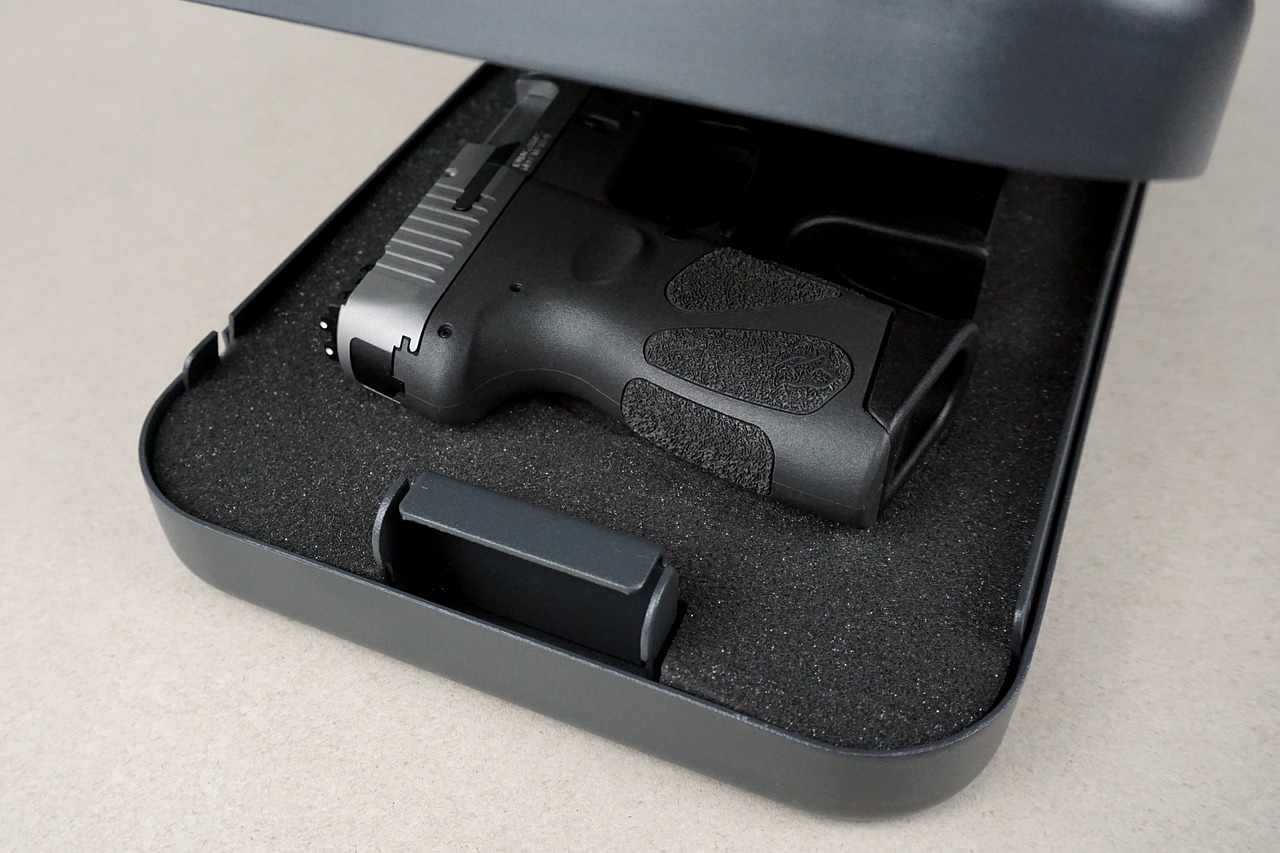
Understanding Self Defense Laws
When it comes to self-defense, understanding the laws that govern its use is not just important; it's absolutely essential. Think of self-defense laws as the rules of the game. If you don’t know them, you could end up in a situation where you’re not just defending yourself, but also defending your actions in a courtroom. In many jurisdictions, the law allows individuals to use reasonable force to protect themselves from imminent harm. However, what constitutes "reasonable" can vary significantly from one place to another.
For instance, the principle of proportionality plays a crucial role in determining whether your response to a threat was justified. If someone were to push you, responding with lethal force could lead to severe legal consequences. Instead, the law typically encourages individuals to use the least amount of force necessary to neutralize a threat. This means that before you reach for a weapon, you should assess the situation carefully. Ask yourself: Is there a way to escape? Can I de-escalate the situation verbally? Understanding these nuances can be the difference between a justified act of self-defense and a criminal charge.
Moreover, different states and countries have varying laws regarding the use of specific self-defense weapons. For example, while pepper spray might be legal in one area, it could be heavily regulated or even banned in another. Therefore, it’s crucial to familiarize yourself with local regulations. This knowledge not only empowers you but also ensures that you are prepared to act within legal boundaries.
In many places, self-defense laws also incorporate the concept of "duty to retreat." This means that if you can safely avoid a confrontation, you are legally obligated to do so before resorting to force. However, some jurisdictions operate under "stand your ground" laws, which allow individuals to use force without the duty to retreat, even if they could have escaped. Here’s a quick table summarizing these concepts:
| Concept | Description |
|---|---|
| Duty to Retreat | Obligation to avoid confrontation if possible. |
| Stand Your Ground | No duty to retreat; can use force if threatened. |
In addition to understanding these basic principles, it’s advisable to seek legal counsel or attend self-defense classes that cover the legal aspects of using force. Many self-defense instructors emphasize the importance of knowing the law as part of their training. By doing so, you not only enhance your physical skills but also arm yourself with the knowledge needed to navigate complex legal waters. Remember, the goal of self-defense is not just to protect yourself physically but to do so in a way that is legally sound.
Lastly, keep in mind that laws can change. Staying updated on any amendments or new legislation regarding self-defense is vital. Regularly checking local news sources or legal websites can help you stay informed. In this ever-evolving landscape, knowledge is your best defense.
- What is considered reasonable force in self-defense?
Reasonable force is the minimum amount of force necessary to protect yourself from harm. It varies by jurisdiction. - Do I need a permit for pepper spray?
It depends on local laws; some areas require permits while others do not. - Can I use a weapon if I feel threatened?
You can use a weapon, but it must be proportional to the threat you are facing.

Obtaining Permits and Licenses
When it comes to self-defense weapons, understanding the legal landscape is crucial. Obtaining the necessary permits and licenses is not just a bureaucratic hurdle; it's an essential part of responsible ownership. The process can vary significantly depending on your location, so it's vital to familiarize yourself with local laws. For instance, some states may require a background check, while others might mandate a waiting period before you can purchase a firearm. This can feel overwhelming, but breaking it down into manageable steps can make the journey smoother.
First, it's important to determine what type of weapon you intend to acquire. Different weapons have different legal requirements. For example, firearms often require a more stringent licensing process than non-lethal options like pepper spray. Here’s a quick overview of what you might need:
| Type of Weapon | Common Requirements |
|---|---|
| Firearms | Background check, permit application, training course |
| Pepper Spray | Usually no permit required, but check local laws |
| Stun Guns | May require registration or permit in some states |
Once you’ve identified the weapon, the next step is to gather the necessary documentation. This typically includes proof of residency, identification, and possibly a certificate of completion from a self-defense training course. Completing a training course not only enhances your skills but also demonstrates to authorities your commitment to responsible ownership.
After submitting your application, be prepared for a waiting period. This can range from a few days to several weeks, depending on your local regulations. During this time, it's a great opportunity to further educate yourself on self-defense tactics and weapon handling. Knowledge is power, and the more prepared you are, the more confident you'll feel when it comes time to defend yourself.
Lastly, always keep abreast of changes in legislation. Laws regarding self-defense weapons can change frequently, and staying informed will ensure that you remain compliant. Joining local self-defense groups or forums can also provide valuable insights and updates on legal matters. Remember, the goal is not just to be armed, but to be responsible and informed.
- What is the process for obtaining a firearm license? The process usually involves applying through your local law enforcement agency, completing a background check, and possibly taking a training course.
- Do I need a permit for pepper spray? In most places, no permit is required, but it’s crucial to check your local laws.
- How long does it take to receive a permit? This varies by location but can take anywhere from a few days to several weeks.
- Can I carry a stun gun without a permit? It depends on your state laws; some states require registration or a permit.
Frequently Asked Questions
- What types of self-defense weapons are available?
There are numerous self-defense weapons to choose from, including non-lethal options like pepper spray and personal alarms, as well as lethal weapons such as firearms and knives. Each type has its own unique features and is suited for different situations, so it's essential to understand what works best for you.
- Is pepper spray effective for self-defense?
Absolutely! Pepper spray is a popular non-lethal weapon that can incapacitate an attacker by causing temporary blindness and difficulty breathing. It's lightweight, easy to carry, and can be a game-changer in a threatening situation. Just remember to check the legal regulations in your area before purchasing.
- How do personal alarms help in self-defense?
Personal alarms are designed to emit a loud sound that can deter attackers and alert others nearby. They are incredibly effective in drawing attention to a potentially dangerous situation, giving you a chance to escape or get help without physical confrontation.
- What are the legal considerations for owning a firearm for self-defense?
Owning a firearm comes with significant responsibilities. It's crucial to understand local laws regarding self-defense and the use of lethal force. You may need to obtain permits or licenses, and it's essential to undergo proper training to ensure safe and responsible use.
- How can I obtain a permit for a self-defense weapon?
The process for obtaining a permit varies by location, but generally, it involves filling out an application, undergoing background checks, and sometimes completing a training course. Always check with your local authorities to ensure you follow the correct procedures.
- What should I consider when choosing a self-defense weapon?
When selecting a self-defense weapon, consider factors like effectiveness, ease of use, legal restrictions, and your own comfort level with the weapon. It's also wise to think about the specific scenarios you might face and choose a weapon that suits those situations.
- Are there any non-lethal alternatives to firearms?
Yes! There are several non-lethal alternatives such as stun guns, batons, and self-defense keychains. These options can provide a sense of security without the potential consequences associated with lethal weapons.


